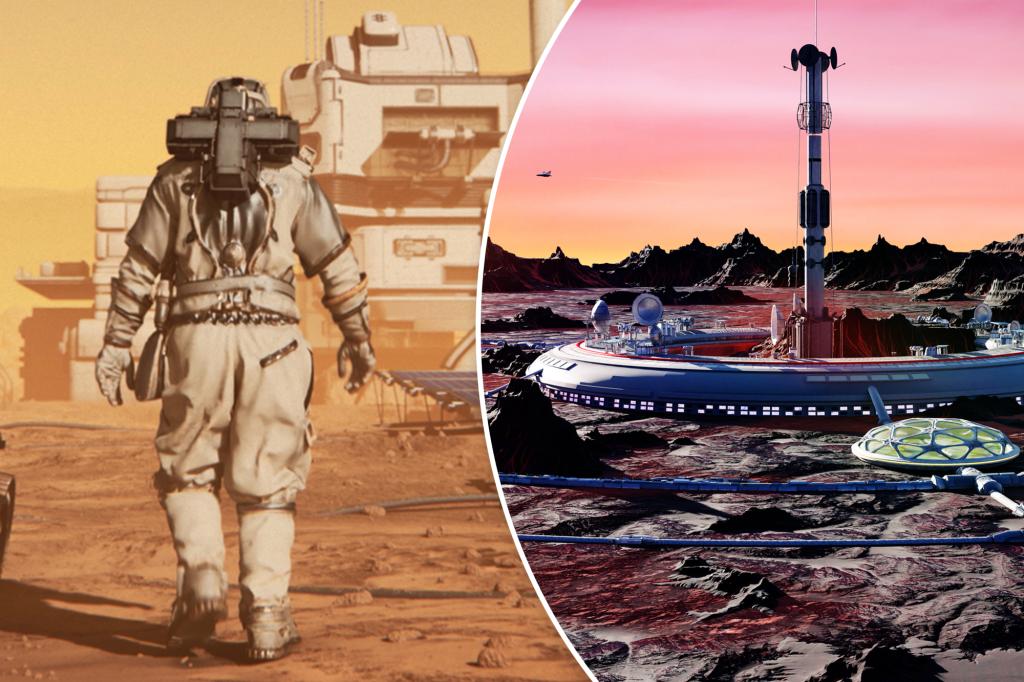Who are the best stars for Mars?
Computational social scientists at George Mason University have published a new paper that reveals the ideal types of Earthlings to inhabit Mars upon the red planet’s hopeful colonization some day.
“Establishing a human settlement on Mars is an incredibly complex engineering problem,” the researchers wrote.
“The inhospitable nature of the Martian environment requires any habitat to be largely self-sustaining.”
The paper, posted this month on the arXiv preprint server, suggests the optimal number of people cohabitating in such a hostile environment would initially be 22.

“Beyond the technical and engineering challenges, future colonists will also face psychological and human behavior challenges,” the scientists noted.
To “better understand” how this would work, they created an “agent-based modeling” simulation to ensure our Mars pioneers work in harmony.
They ran five simulations, each modeling 28 Earth years of colony life.
They applied what they call four basic personality types to the settlers within the simulations: neurotic, reactive, social, and agreeable.
“We also found that the agreeable personality type was the one more likely to survive,” they wrote. “We find, contrary to other literature, that the minimum number of people with all personality types that can lead to a sustainable settlement is in the tens and not hundreds.”
In other words, less is more here.

The 22 Mars settlers should work as “high-performing teams” who can thrive “in isolated and high stress environments.”
Such spacemen and women would ideally be attune to claustrophobic and often chaotic settings, including: submarines, Arctic explorations, being onboard the International Space Station, and even combat scenarios.
Perhaps SpaceX boss Elon Musk would qualify after the tumultuous few months that X, formerly known as Twitter, has had.

The findings arrive ahead of the awaited Aug. 28 season finale of “Stars on Mars” — a FOX space survivor reality show that pits celebrities including Super Bowl champ Marshawn Lynch against a simulation of the planet’s conditions.
Also this summer, NASA revealed it has detected organic molecules that may be the “key building blocks for life” on Mars.
𝗖𝗿𝗲𝗱𝗶𝘁𝘀, 𝗖𝗼𝗽𝘆𝗿𝗶𝗴𝗵𝘁 & 𝗖𝗼𝘂𝗿𝘁𝗲𝘀𝘆: nypost.com
𝗙𝗼𝗿 𝗮𝗻𝘆 𝗰𝗼𝗺𝗽𝗹𝗮𝗶𝗻𝘁𝘀 𝗿𝗲𝗴𝗮𝗿𝗱𝗶𝗻𝗴 𝗗𝗠𝗖𝗔,
𝗣𝗹𝗲𝗮𝘀𝗲 𝘀𝗲𝗻𝗱 𝘂𝘀 𝗮𝗻 𝗲𝗺𝗮𝗶𝗹 𝗮𝘁 dmca@enspirers.com


